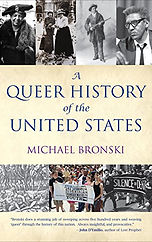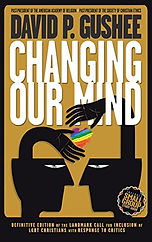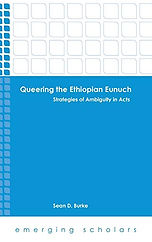In 2001, Kathy Baldock, a straight conservative evangelical Christian, met Netto Montoya, a lesbian Native American, on the local hiking trails near her home in the Sierra Nevada Mountains. Their friendship challenged Baldock's cultural and religious beliefs about gay, lesbian, bisexual, and transgender people.
In Walking the Bridgeless Canyon: Repairing the Breach between the Church and the LGBTQ Community, Baldock uncovers the historical, cultural, medical, and political filters of discrimination through which the LGBTQ community is seen. With a foundational context firmly established, she examines the most controversial filter of all: what the Bible says about same-sex behavior.
Ten years of research, as well as relationships with thousands of gay, lesbian, bisexual, and transgender people, led to answering important questions: How did history, culture, science, and politics intertwine to create social discrimination against the gay and transgender communities? When and why did the conservative Christian community turn their focus on the gay and transgender communities? Should Christian fellowship be extended to gay and transgender people? Should Christian marriages, be granted to same-sex couples? What is happening within the LGBTQ Christian movement today?
Baldock carefully constructs a historical timeline narrative as she untangles the details of various influences and influencers. Along the way, she shares fascinating stories and testimonies enriching the journey. Finally, for those who are wondering how they might enter into productive and respectful conversations about the intersection of faith and sexual orientation or gender identity, this book offers the resources and tools needed to make informed, wise, and Christ-centered choices. This book has a companion Discussion Guide intended for personal, group, or Bible study use.
“As a biblical scholar and a gay man, I sometimes have people ask me for reading suggestions on LGBTQ issues and Christianity. I can usually recommend a book on some aspect of the topic, and another on another aspect. But Kathy Baldock’s book is the best I know right now for covering many of the relevant topics: history, science, scripture, politics, and even self-help suggestions at the end. I’ll be recommending this book as the number one place to start for many people in the future.”
Dale B. Martin, Woolsey Professor Emeritus of Religious Studies, Yale University
“Kathy Baldock is one of the most tireless, dedicated, and influential advocates for LGBT Christians in the evangelical church. Her work has helped to transform the lives of thousands of people, and her ministry is a model of the kind of effective, conciliatory bridge-building work the church desperately needs. In Walking the Bridgeless Canyon, Baldock guides the reader on a fascinating journey of how the church has responded to the LGBT community--and how we all can and should do better. Brilliantly researched, accessibly written, and lovingly expressed, this book is essential reading for anyone wanting to understand the intersection between the conservative church and the LGBT community. I highly recommend it--and its remarkable author.”
Matthew Vines, president of The Reformation Project, author of the book God and the Gay Christian, Random House
“If you read only one book on the history of LGBTQ rights, the culture, psychotherapy, religious reactions, and what the Bible really says about being gay Walking the Bridgeless Canyon should be it. It is well researched, compelling, and eye-opening. This book is destined to be the go-to resource for everyone interested in the truth about LGBTQ people, our rights, and the rights of all people”
Yvette Cantu Schneider, former policy analyst Family Research Council, former director of women's ministry at Exodus International, and author of the book, Never Not Broken




















